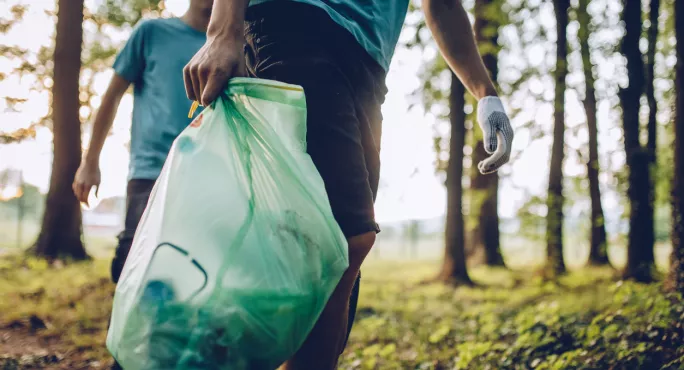- Home
- Teaching & Learning
- General
- Could you start a green revolution at your school?
Could you start a green revolution at your school?

Now, more than ever, there is a renewed focus on how governments and communities can help to address the challenge of climate change.
Yet, beyond the vital importance of international cooperation, it is also clear that when one person takes positive action to improve the environment, we all can benefit.
This has been underlined for me recently in judging the environmental champion of the year category for the Tes School Awards 2021.
More on climate change education:
These individuals have done incredible things in their schools, from getting pupils involved in making honey from beehives, to creating school veg plots and building bird boxes, among many, many other things.
COP26: The importance of schools helping to tackle climate change
Each brought a distinctive approach to their work, whether it was supporting Kenyan and Nepali schools to also create bee-friendly grounds, championing “plastic-free” status, celebrating Eid with dips made with mint from their veg garden or creating alfresco classrooms.
It’s clear how much of an impact one person can have when it comes to sustainability. But their ambitions have not been limited by their school gates: each has worked to share their experiences, seek wider improvements and encourage others to take up the environmental baton, too.
At the heart of much of the work were partnerships: with pupils, parents, local residents and groups, including the Women’s Institute, Surfers Against Sewage, forest schools and the RSPB.
Getting the message out to a wider audience was also key: some invited local councillors to meet their eco-council, others took pupils to Parliament to speak with Michael Gove MP, while some got students to record podcasts and radio interviews.
Underpinning all of this were the authentic voices of pupils, speaking from their direct experience, demonstrating the positive change that they can achieve and encouraging others to become involved.
There are other key environmental initiatives taking place at the moment, too.
Ofsted’s recent findings on primary geography highlighted how the subject is an important curriculum opportunity for young children to learn about their environment, and a launch pad for wider engagement and activity. As Ofsted reported: “Many (pupils) were passionate about the planet and looking after it, and they told us they were taking action to protect the environment.”
For secondary students, there is a programme of work led by geographer Dr Lizzie Rushton, and science colleagues, to involve teenagers in the co-creation of a manifesto for education for environmental sustainability. The manifesto will provide challenge and provocation to those who make decisions about what happens in our schools and classrooms, be it in the curriculum or a school’s estate, community or wider life.
So, whether taking a lead from Greta Thunberg, getting involved in the RGS’s weekly #beclimatesmart initiative or being inspired by Mya-Rose Craig’s love of birding and promotion of equality in the environment, there is much (more) for all schools to do to improve and protect the environment.
And a final lesson is captured in the words of the Wordsworth poem, The Tables Turned, which I saw displayed in one school’s eco-garden: “Let nature be your teacher.”
This article was originally published on 23 June 2021
Steve Brace is head of education and outdoor learning at the Royal Geographical Society (with IBG). You can follow him on Twitter at @SteveBraceGeog
You need a Tes subscription to read this article
Subscribe now to read this article and get other subscriber-only content:
- Unlimited access to all Tes magazine content
- Exclusive subscriber-only stories
- Award-winning email newsletters
Already a subscriber? Log in
You need a subscription to read this article
Subscribe now to read this article and get other subscriber-only content, including:
- Unlimited access to all Tes magazine content
- Exclusive subscriber-only stories
- Award-winning email newsletters



